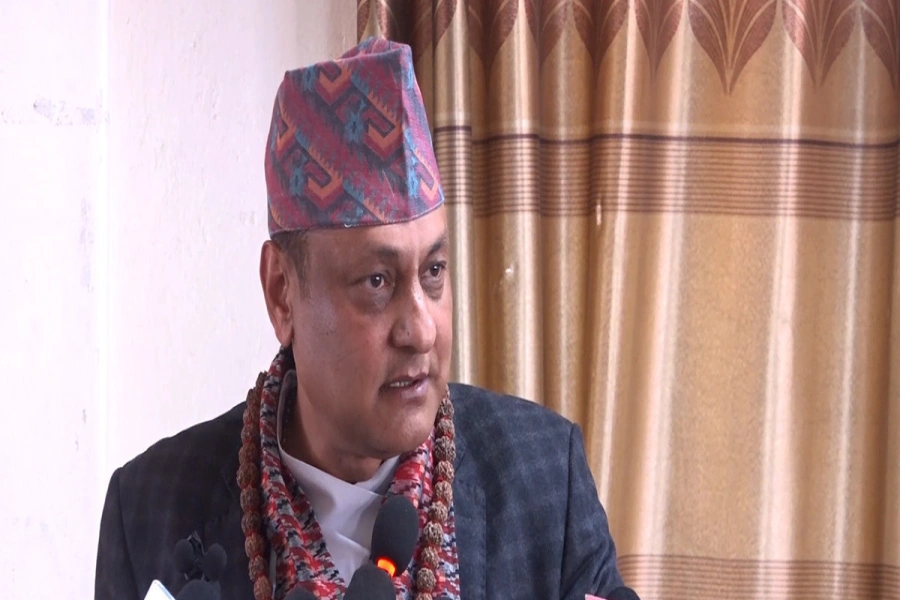KATHMANDU, Feb 1: Without consultation with Prime Minister Pushpa Kamal Dahal, the information classification committee led by the chief secretary has agreed to suspend the process of blocking access to government information. Following the interest of PM Dahal, after discussions with the concerned parties on Monday, it was agreed to postpone the proposal prepared for classification of information and proceed with the discussion in a new way.
The stakeholders have drawn the government's attention to the fact that the classification of information should not contradict the Constitution of Nepal and the existing laws regarding the right to information, and the political system and democracy will be strengthened if real information is circulated. In a discussion with the concerned parties along with the central president of the Federation of Nepali Journalists (FNJ), Chief Secretary Shankar Das Bairagi who is the coordinator of the committee, claimed that they did not put forward the classification proposal to curtail the right to information but to organize the information.
Bipul Pokharel, president of FNJ informed Republica that since the right to information has been arranged to empower the people in the democratic system, he has suggested to the government to withdraw the classification proposal and discuss it in a new way. During the discussion, the participants claimed that there was an agreement between the government representative and the communication representative to withdraw the proposed proposal and bring a new proposal to the agreement with the concerned parties.
Labor Ministry forms a Task Force to classify foreign employmen...

What are the 87 kinds of information sought to be hidden?
Out of the 87 kinds of information that the government wants to keep secret, 29 are related to Nepal's sovereignty, integrity, national security, public peace and order and international relations. The views of the Government of Nepal on bilateral talks and sensitive cases, records of stance strategies and discussions and pending issues, issues that are in the decision-making process and issues that have not been finalized, answers presented by the relevant ministries to the questions raised in parliament and parliamentary committees, etc. In the same way, it was said that the matters specified as confidential by the special law will be kept confidential, while 13 kinds of information related to the investigation and prosecution of the crime are being kept confidential. In which there are matters related to blacklisting according to the public procurement law and the decision process made by the review committee, revenue leakage, tax evasion, reports on suspicious transactions and their monitoring, facts and details related to the monitoring and investigation of human rights violations.
As many as 29 types of information relating to financial, commercial and monetary interests or protection of monetary assets or banking or trade secrets were also sought to be concealed. The government tried to classify and hide 13 types of information related to good relations between different castes or sects, personal privacy and people's livelihood, property, health or safety.










-1200x560-wm_20240503161056.jpg)
























